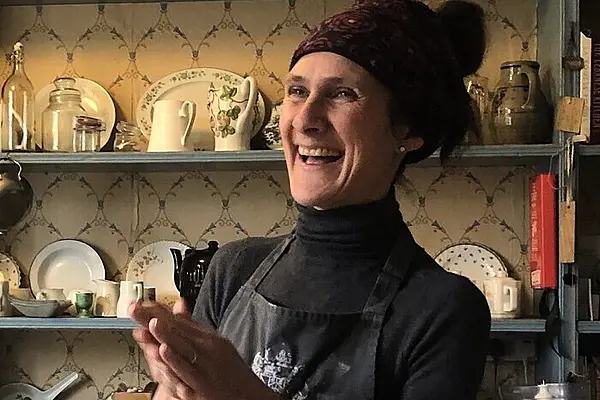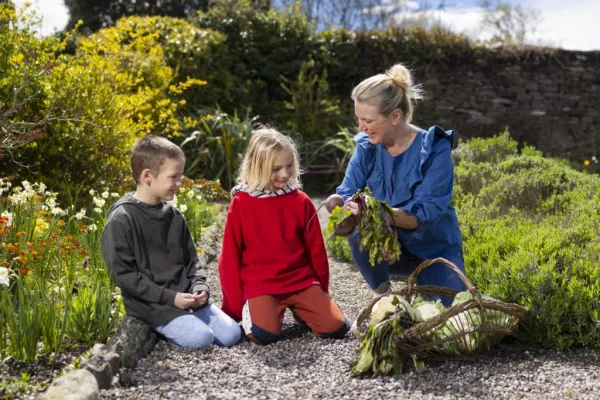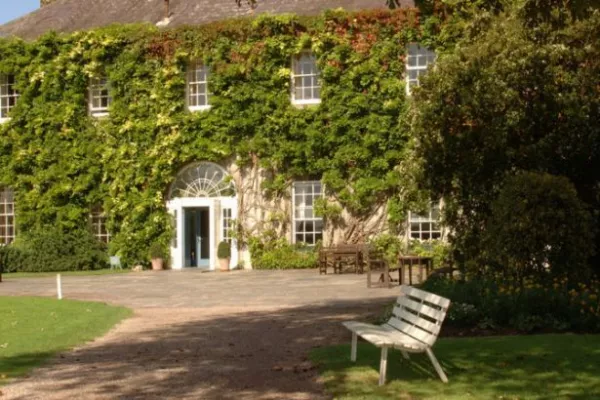Robert McHugh speaks to Emily Bunbury, co-owner of Lisnavagh House, ‘the ultimate mix of homeliness and grandeur.’
Lisnavagh House, in County Carlow, is a 19th-century Tudor Gothic estate that spans 800 acres of parkland, offering panoramic views of the Wicklow Hills, Blackstairs Mountains, and Mount Leinster.
Owned and operated by Emily and William Bunbury, whose family has lived at Lisnavagh for generations, the estate aims to be a serene sanctuary where guests can unplug, reset, and reconnect with nature.
Lisnavagh House is an established venue for weddings, yoga sleep retreats, corporate stays and other bespoke events. Farming and woodland schemes still take place at Lisnavagh on the remaining 600 acres of farm and woodland.
Emily Bunbury recently spoke to Hospitality Ireland about her love for nature and the responsibility she feels about her role.
Emily, what is the ethos of Lisnavagh House?
Our ethos at Lisnavagh is about history mixed with modern day comforts as well as connecting people with nature and showing them how it benefits us through its surroundings, as well as through nutrition by growing your own food and eating sustainably.
Please tell us about your own background, Emily – where you grew up, studied, your career so far, etc.
I grew up in Ireland just off The Curragh, Co. Kildare. I had rural upbringing and then travelled the world after finishing my education.
I enjoyed living with different cultures. Before I came to Lisnavagh, I lived in London where I started my own bespoke tours business bringing clients into Ireland.
I married William Bunbury in 2002, and we have been managing and running Lisnavagh since then as a destination for overseas as well as national visitors.
What first drew you to hospitality?
I have always believed Ireland is a place that people enjoy visiting. Setting up my business was the first draw to hospitality and the satisfaction of offering people something they enjoyed, gave me pleasure.
It is more about Lisnavagh, and bringing people to a beautiful place where they can be with nature and eat wholesome food.
Who was your first mentor in hospitality
I guess I am always looking at different people with different ideas. Chefs like Ottolenghi would influence me and Ballymaloe is a good set up and something to aspire to.
I also get inspiration from places abroad.
What are the changing trends in hospitality – people’s expectations, new elements, etc.?
I feel that people are looking for comfort, quirkiness, new discoveries and nature. People are getting into the great outdoors.
I feel people want simplicity and relaxation as well as new challenges that keep them healthy.
We hold a festival, Hidden Hearth, in October which focuses on arts, wisdom and wellbeing. It connects people to each other and with nature through the arts. It is a magical and meaningful event and people get to enjoy this through sobriety, which gives even more benefits.
What are the major challenges at the moment?
Keeping Lisnavagh House in tact is very challenging, so getting more support from the government would be incredibly helpful to be able to maintain the buildings, as well as the surroundings, so that we can invite people to see the beauty of these places in a safe environment.
Looking ahead, what are your career goals and aspirations, and how do you envision making a lasting impact in the hospitality sector?
Myself and my husband, William Bunbury, work with a wonderful team of people here at Lisnavagh and our mission is to make it sustainable - both financially and environmentally.
We have started developing the walled garden, and will develop the growing from there, in order to provide food through permaculture and agroforestry.
The Farmyard is our long term project where we are converting the buildings slowly but surely, as well as using the land around it for growing food. Lisnavagh House will sustain high-end hospitality.
What do you like to do when you are not working?
I like to study nutrition as well as cold water swimming, being in nature and skiing when I can!








